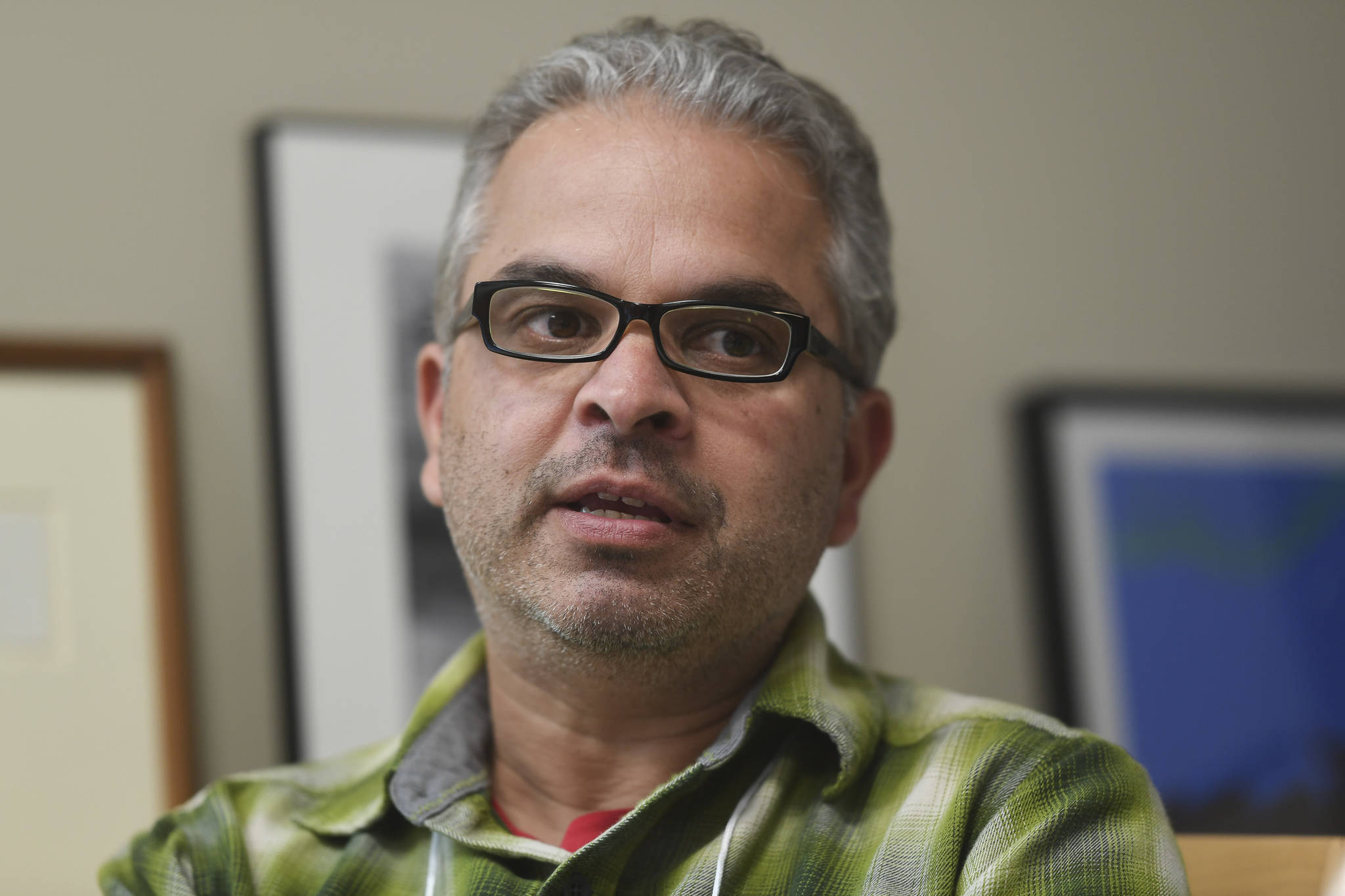Your blood might help researchers better understand how colonization may have changed Alaska Natives’ DNA.
A new study taking samples in Juneau this week and later this summer in Hoonah will analyze the DNA of Hoonah residents and Hoonah people living in Juneau to determine how historical trauma may have changed indigenous people on a genetic level.
“We might learn more about culture contact and what the effects of that are that persist to today,” said Chuck Smythe, culture and history director for Sealaska Heritage Institute, in an interview. “That would be a very interesting finding. We might think there are lasting effects of that, but we don’t know. This is a way to provide measurements of that.”
[Wireless service might be getting a lot faster in Alaska]
SHI, the nonprofit organization for perpetuating and protecting Alaska Native arts and culture, is one of a handful of collaborators in a study that is the first of its kind to examine changing gene expression through the prism of Alaska Natives and colonization.
“No one’s ever really looked first at indigenous peoples in North America or Alaska Natives,” said principal investigator Ripan Malhi, a professor for the University of Illinois Urbana-Champaign, in an interview. “Also, no one has looked at trauma that has happened a few generations back but may have longer, lasting effects through time like historical trauma associated with European colonization and colonialism.”
While Malhi said his study, which is hoped to yield presentable data by late spring, is the first to bore in on this specific subject past studies have observed the connection between lived experiences and how genes are expressed.
Those include studies involving inner city residents of Detroit, soldiers with PTSD, survivors of attempted genocide and people who experienced famine.
The definition of trauma in the study titled “Epigenomic Effects of European Colonization on Alaska Native Peoples,” which is a collaboration with Sealaska Heritage Institute, Hoonah Indian Association and Southeast Alaska Regional Health Consortium, is kept intentionally broad because there are a number of things that may have made a mark.
“Sometimes kids were taken from their families and sent to schools or sent to missions, dietary changes, pressures on subsistence, things like that,” Smythe said. “It’s sort of a host of changes. Very strong efforts by missionaries to stop traditional ceremonies, traditionalism in general. Those sorts of things.”
Smythe said Hoonah was selected because SHI has a good relationship with Hoonah.
“There are a lot of Hoonah people who are in Juneau now,” Smythe said. “We knew that they would be interested in this too, and they have a relatively large population compared to other villages.”
The study is trying to attract enough Tlingit people over the age of 18 living in or coming from Hoonah to provide a good baseline for analysis. Malhi said the goal right now is for 100 volunteers.
“If we get more than we have more statistical power,” Malhi said.
Those who volunteer have their blood collected and answer a series of survey questions to provide researchers with demographic information as well as insight into general well-being, community events participation and traumatic experiences. They are also compensated with a $50 Amazon gift card.
“Basic things like cigarette use, exercise and foods that are eaten can influence epigenetic patterns, so we ask about that,” Malhi said.
[Unique Chilkat leggings make their public debut]
The blood that is collected is shipped overnight to Illinois where DNA and RNA can be extracted.
All data collected will be anonymous in the study and samples will be destroyed at the conclusion of the study. The identity of volunteers is also being kept confidential.
SHI and Malhi declined to allow the Empire to interview volunteers.
There is no pre-colonization control group providing DNA samples for the study. Instead, Malhi said comparing genetic data and survey results will help “triangulate” possible trends.
“We have the surveys and we’ll have people that will end up scoring high for historical loss and historical trauma and other Alaska Native people that score low, and that ends up being a kind of control because you can see associations with survey results,” Malhi said. “We can also compare to other communities and populations that have some associations with trauma.”
There’s also the possibility that results won’t show any genetic impact from colonization, and at that point Malhi said it would be a matter of determining whether it was a result of not enough data.
However, that’s a question that requires data to exist and that’s still months away.
“Right now, because we’re at the very beginning, who knows what will pan out,” Malhi said.
Want to volunteer?
The study will be taking place at Sealaska Heritage Institute’s Walter Soboleff Building until Friday, June 21.
Interested volunteers can contact Chuck Smythe at chuck.smythe@sealaska.com or 586-9282, or contact Mason Auger at mason.auger@sealaska.com or 586-9229.
• Contact reporter Ben Hohenstatt at (907)523-2243 or bhohenstatt@juneauempire.com. Follow him on Twitter at @BenHohenstatt.

